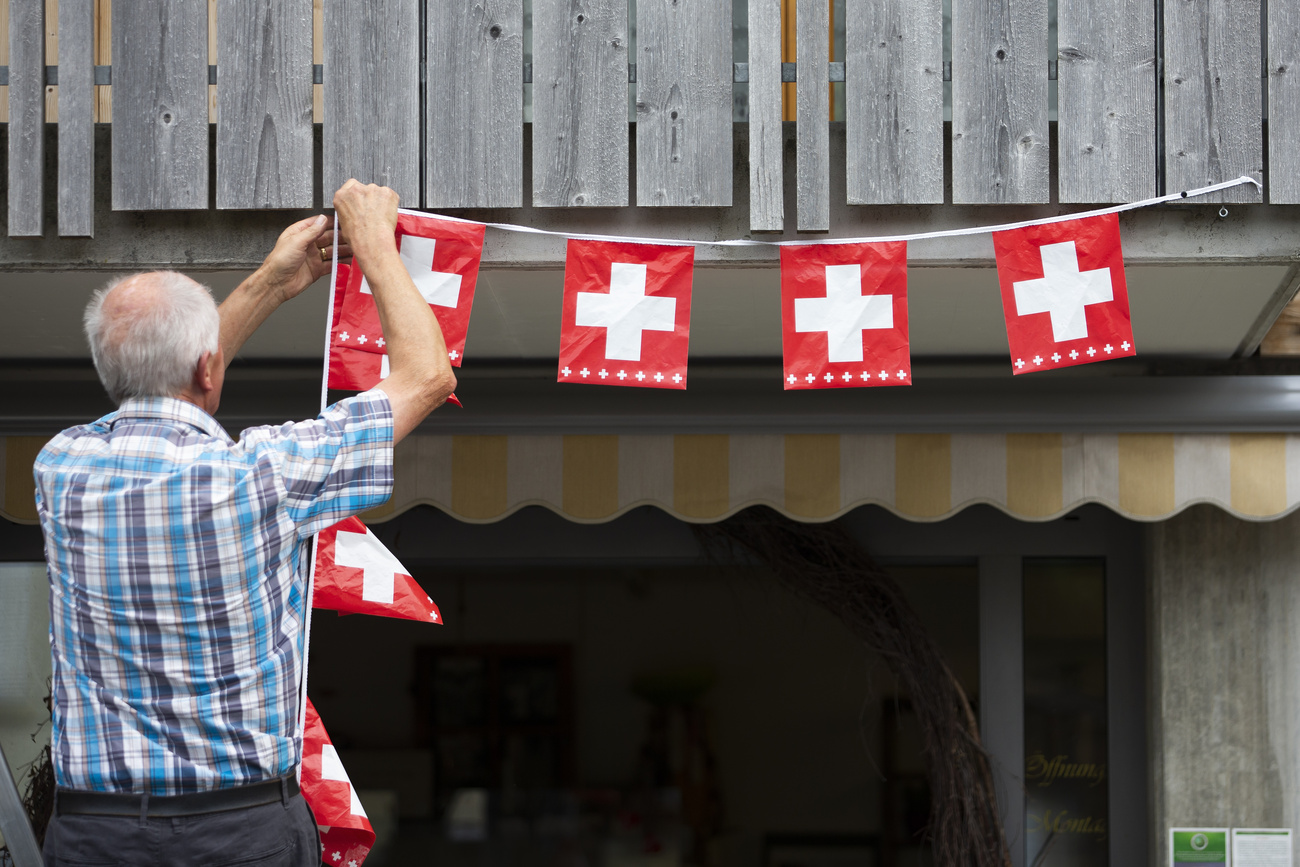
Goats enjoy mental gymnastics, research finds

Goats appear to like problem solving – something that could contribute to their welfare on the farm, according to Swiss and German researchers.
The study, funded by the Swiss National Science Foundation (SNSF) and the German Research Foundation, observed that goats liked to earn a reward by putting in some effort, even if they could get the same reward with no effort at all.
Two breeding lines – dairy goats and dwarf goats – were offered a choice of two types of reward (a piece of uncooked pasta). One could be reached without any effort, while the other had to be earned by opening a door with their muzzles.
Nina Keil and Katrina Rosenberger, from Agroscope,External link the Swiss centre of excellence for agricultural research, found that of the 57 goats that took part, 53 chose to slide open the door to obtain their reward at least one time in ten, even though the same reward could also be obtained without any effort.
Their results have been publishedExternal link in the journal Scientific Reports.
Motivated
However, the dairy goats seemed to be more motivated to open the door than the dwarf goats, who were more cautious at first.
The researchers had expected the dwarf goats to show interest because they had done so in a similar experiment in Germany, they said in a SNSF statement on FridayExternal link.
“However, the dairy goats came as a surprise. Since they are bred for a high milk yield, we had expected them to conserve their energy and be less motivated to make an effort to get a reward, particularly if they could get the same reward without having to make that effort,” Rosenberger said.
The results are based on the principle of “contra-freeloading”. “The term describes the behaviour of animals that prefer to make an effort to fulfil their desire for a particular resource rather than have it placed in front of them,” Keil explained.
Need for control
This has been observed in domesticated animals and in wild animals in a zoo environment, for example, but it is not known if this takes place in the wild.
“We assume that the animals display this behaviour because solving a task gives them control over their environment and triggers positive emotions,” Keil said. “They apparently derive a certain satisfaction that makes the additional effort worthwhile.”
Domestic goats’ living conditions should make allowance for this, Keil said. The researchers are aiming to expand their experiment over a longer period and under real-life conditions on a farm.
If the results support the introduction of these kinds of measures at farms, they should be easy to integrate into farmers’ everyday routines, the SNSF statement concluded.

In compliance with the JTI standards
More: SWI swissinfo.ch certified by the Journalism Trust Initiative
















![The four-metre-long painting "Sonntag der Bergbauern" [Sunday of the Mountain Farmers, 1923-24/26] had to be removed by a crane from the German Chancellery in Berlin for the exhibition in Bern.](https://www.swissinfo.ch/content/wp-content/uploads/sites/13/2025/12/01_Pressebild_KirchnerxKirchner.jpg?ver=a45b19f3)










You can find an overview of ongoing debates with our journalists here . Please join us!
If you want to start a conversation about a topic raised in this article or want to report factual errors, email us at english@swissinfo.ch.